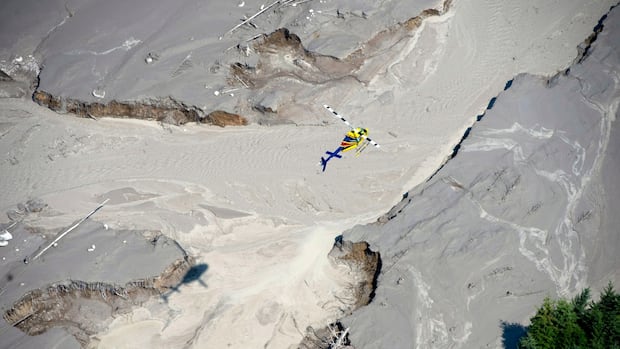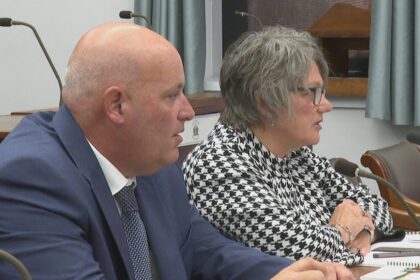British ColumbiaXatśūll First Nation lost a bid to stop the height of a tailings dam from being increased at the Mount Polley mine, site of a catastrophic dam collapse in 2014.The mine was the site of a massive toxic spill when its tailings pond dam collapsed in 2014CBC News · Posted: Sep 03, 2025 5:26 PM EDT | Last Updated: 4 minutes agoAn aerial view shows the damage caused by the toxic waste from the Mount Polley Mine tailings pond breach near the town of Likely, B.C., Tuesday, Aug. 5, 2014. (Jonathon Hayward/Canadian Press)The Xatśūll First Nation is hoping to overturn a recent B.C. Supreme Court decision rejecting its bid to stop the level of a tailings dam from being increased at the Mount Polley mine site, which suffered a catastrophic dam collapse that spilled billions of litres of waste and water in 2014.The First Nation claims the province’s approval of the plan to raise the level of the dam in B.C.’s Interior by four metres was improper and done without “meaningful” consultation with the nation. But its case was dismissed Aug. 6, with Justice Michael Tammen ruling the provincial government’s consultation with the Xatśūll was proper.That decision, the nation says, sets a dangerous precedent for environmental regulation and Indigenous rights.”The Mount Polley Mine needs to be held to 2025 standards for environmental oversight and Aboriginal rights protection, not to more limited standards from nearly 40 years ago, which is the effect of the ruling,” Kukpi7 Rhonda Phillips said in a written release provided by the Xatśūll First Nation. “This is particularly important given the history of the mine’s impacts on our territory and Mount Polley’s plans to expand further.”On Wednesday, the nation filed to have the case overturned in the B.C. Court of Appeal.The nation said it would not be providing any further statements or interviews while the matter was before the courts.WATCH | Dam height can be raised, court rules: B.C. Supreme Court decision allows Imperial Mines to raise Mt. Polley dam heightB.C’s Xatsull First Nation says it is disappointed in a B.C. Supreme Court decision that allows the owners of the Mount Polley mine to raise the height of their tailings dam in B.C.’s Interior. In 2014, the mine site suffered a catastrophic dam collapse that spilled millions of litres of waste and water. CBC ‘s Marcella Bernardo reports on the details.Mount Polley is an open-pit copper and gold mine located in British Columbia’s Cariboo region, 56 kilometres northeast of Williams Lake.The mining company says the size of the tailings pond needs to be increased to ensure Mount Polley can continue to operate. Tammen said in considering the expansion, the nation was provided with “ample opportunity” to present its perspective.He also said raising the dam as proposed “does not increase the scope of operations at the mine, nor does it increase the ecological footprint of ongoing mining operations.” He said he didn’t want to dismiss, diminish or minimize the “deleterious” effects of the tailings dam failure, which is still the subject of civil litigation and Fisheries Act charges against the company. Despite the tailings pond disaster of 2014, Mount Polley Mining Corp. has fought off an injunction sought by the Xatsull First Nation to stop the company from increasing the level of the dam wall by four metres. (Jonathan Hayward/Canadian Press)Following that ruling, the provincial government granted consent for expansions — which require further permits to go ahead — that include the deepening of a pit and expansion of a disposal area for “potentially acid-generating rock” which could extend the life of the mine by another two years, into 2033.B.C.’s Environmental Assessment Office says Environment Minister Tamara Davidson and Mining Minister Jagrup Brar issued the consent order.A statement from the office says the project also calls for the continued discharge of treated water into Quesnel Lake, but adds there would be no further land disturbance since the expansion remains within the mine’s existing footprint.It says the ministers agreed with the office’s conclusion that the proposed changes are not likely to result in “significant effects” and notes the Williams Lake and Xatśūll First Nations were consulted as part of its assessment.With files from The Canadian Press
Xatśūll First Nation hopes to overturn court ruling on controversial Mount Polley mine











